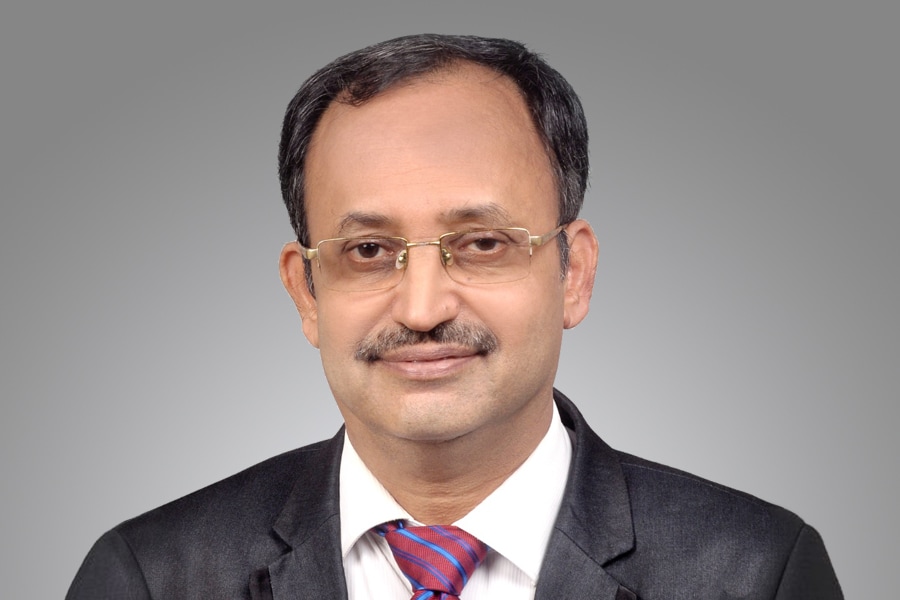A Journey through the Metamorphosis of Dermatology in India: Three Decades Exper
Prof. Ramesha Bhat M, Vice Dean, Fr Muller Medical College, Mangalore, Director ILDS, IADVL, National President 2018



“Unexpected journeys often lead to adventures beyond our wildest dreams." This quote perfectly encapsulates my ongoing journey in Dermatology. When I had joined post-graduation in Dermatology, it was not my first choice, like many of my colleagues at the time. However, my unplanned choice has proven to be gratifying beyond measure. It was an unconventional yet momentous start into a new and exciting world of visual adventure, which I continue to explore over the years. With immense pride and humility, I bear witness to the revolutionary changes that have happened in this field over the past three decades.
In our initial years of training, the scope of dermatology was confined to managing cases often dictated by the limited availability of topical and systemic medications. This reality has undergone a tectonic shift. We now have a plethora of newer molecules, including biologics and small molecules, along with an extensive array of topical medications. Over the years, research in Dermatology and Therapeutics is immense. It has aided dermatologists to effectively manage chronic and debilitating dermatologic diseases. As a positive trend, compared to the grim picture of high leprosy prevalence, decades ago, we now come across fewer cases of leprosy. In the area of sexually transmitted diseases(STD), earlier, there was an overwhelming predominance of bacterial STDs like syphilis, Gonorrhea, Chancroid, and Granuloma Inguinale and rising cases of Human Immunodeficiency Virus (HIV) infection. Presently, we see more viral STDs and a few instances of a resurgence of syphilis. Notably, most of our patients with HIV infection receive antiretroviral drugs and lead near-normal lives.
Dermatosurgery"s evolution has helped many patients, especially in diseases like vitiligo. Aesthetic Dermatology has made people focus on “desired skin" than “diseased skin." Lasers and other physical modalities of therapy have revolutionized the outcome of acne and scars. Basic and applied research in dermatology has transformed our understanding of diseases. The branch of dermatology that used to be an unconventional choice for post-graduation is now the cynosure of all eyes and toppers vie for a spot to pursue this field.
Nevertheless, the picture is not as rosy as it may appear. We now note a rise of Leprosy cases of the infective, multibacillary type. We continue to fight biases and social stigma against not just leprosy but diseases like vitiligo. Our changing lifestyle with a rise in obesity is linked to a surge in autoimmune diseases such as psoriasis. Topical steroid misuse for conditions ranging from “quick-fix skin lightening" to skin infections has become a pestilence that must be curtailed. The epidemic of dermatophytosis continues unabated with emerging drug-resistant strains of fungi. This is a direct result of topical steroid combination creams. Aesthetic dermatology continues to be encroached upon by quacks to pursue easy money, which has created ethical and safety issues.
As dermatologists", we hold our responsibility to educate our society about skin health to the highest standard. International and national dermatology associations such as ILDS (Global skin health as the motto) and IADVL (Swach Twacha Swach Bharath as the motto) work in tandem to provide quality and affordable skincare to all people. We continue our fight to curtail infectious diseases and topical steroid abuse. We continue to work towards quality dermatology education, steeped equally in expertise and ethics.
In the last three decades, the story of the evolution of Dermatology is profound and stirring. As a robust and united global community of dermatologists, we strive with courage, conviction, and curiosity to create better solutions for better skin health for all.
The pages slugged ‘Brand Connect’ are equivalent to advertisements and are not written and produced by Forbes India journalists.
First Published: Oct 11, 2021, 15:00
Subscribe Now